14-5. In the Golden Age of the Bull the
Neck of
the Lion, hidden by his Mane, had risen with the Sun at the summer solstice in
JUNE 21 (172), which position due to the precession then had moved ahead
with 8 * 8 right ascension nights since that ancient time, i.e. to
August 24 = day 172 + 64 = 236 (→ 8 * 29½).
...
Ogotemmêli believed that in the beginning men counted by eights
- the number of cowries on each hand, that they had used their
ten fingers to arrive at eighty, but that the number eight
appeared again in order to produce 640 (8 x 10 x 8). 'Six
hundred and forty', he said, 'is the end of the reckoning.'
According to him, 640 covenant-stones had been thrown up by the
seventh Nummo to make the outline in
the grave of Lébé ...
The stars at the Day
of St John (JUNE 24) must similarly have moved ahead to Agust 27
(239):
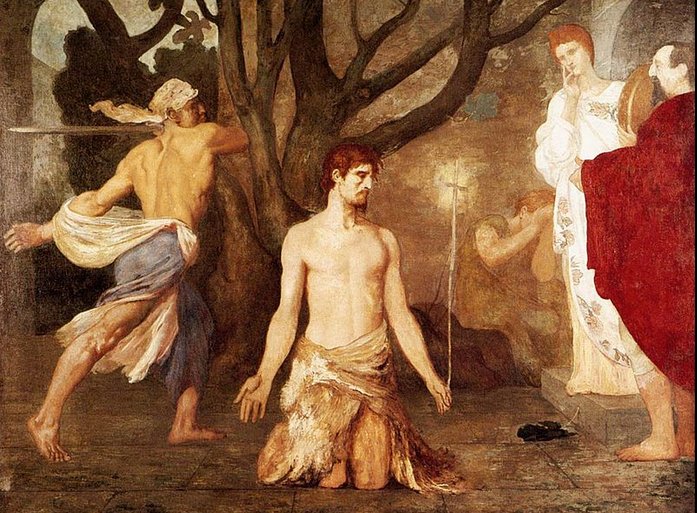
 |
 |
 |
 |
 |
 |
|
Eb4-32 (465) |
Eb4-33 |
Eb4-34 |
Eb4-35 |
Eb4-36 |
Eb4-37 (12 * 12) |
|
manu hiri ki te ariki |
e ariki |
manu rere |
tapamea |
ka hokohuki - ma tere o te kahi |
te matakao - e ua |
|
Hiri 1. To braid, plait,
tress (hair, threads). 2. To rise in
coils (of smoke). 3. To hover (of
birds). Vanaga. 1. To elevate, to
mount. Hiriga, to elevate;
elevation, mounted, ascension,
assumption, declivity; hiriga
mouga, hillside. Hirihiri,
a swing, seesaw. P. Pau.: iri,
to be put up in a place, to lodge.
Mgv.: iri, placed in a higher
position than the observer, as a box
on a high shelf. Ta.: iri, to
lodge or stick up in a place. The
germ signification is 'above,
higher'. In Samoa it is used most
commonly in a tropical sense, but
the primal sense is sufficiently
retained in the signification to
lodge, to stick in, to show general
concord with Rapanui and particular
harmony with the other languages of
Southeast Polynesia. 2. To make a
bag; taura hiri, to make a
cord; rauoho hiri, plaited
hair; hirihiri, frizzed;
rauoho hirihiri, lock of hair. P
Mgv.: hiri, wo weave, to
plait; akahiri, to make a
mat. Mq.: hii, large plait of
coconut fiber. Ta.: firi, to
plait, to braid. When we interpret
in the sense of local conditions
Père Roussel's definition 'to make a
bag' the concord is perfect, for
bags are woven. The germ sense is
plainly the act of twining in and
out, over and under, which, with
specific differences due to manner
and material, may result in plaiting
or weaving; see hiro. 3. To go, to
walk, to voyage, to arrive, to
appear; hiri tê reka, to go
without noise; hiri koroiti,
to go softly; hiri tahaga no mai,
to go without a halt. Hiriga,
voyage, journey; hiriga hakapa,
to go by twos; hiriga hipa,
to go obliquely; hiriga kokekoke,
to go by sudden steps; hiriga
okorua, to go by twos; hiriga
tahataha to go across; hiriga
tekiteki, to go on hopping;
hiriga tê mataku, to go on
fearlessly; hiriga totoro, to
go on all fours; hiriga varikapau;
to go in a ring; hiriga veveveve,
to go boldly. Churchill. Pau.:
Hirinaki. 1. To incline, to
slope. Ta.: hirinai, to rest
upon. Ma.: irinaki, to rest
upon. 2. To be apprehensive. Ta.:
hirinai, to apprehend.
Churchill. Mgv.: Aka-hiria,
to enquire after. Sa.: sili,
to ask, to demand. Hirihiri,
to fish for turtle. Mq.: fiifiii,
a small net for taking turtle.
Churchill.
Ki. To,
towards (a place, a person); after
(time); for, in order to... Vanaga.
Kî. To say, to speak; word,
language; will, wish (verbally
expressed): e-hakarogo koe ki te
kî o toou matu'a, obey you
father's will. Vanaga. 1. In,
toward, to, for, at; ki ra,
there; ki ra hoki, exactly
there; ki aho, outside; ki
roto, within, into, inside,
among. 2. In order that. 3. To say,
to speak, to chat, to pronounce, to
respond; argument, conversation,
description, doctrine, expression,
word, relation; ki veveveve,
voluble; ki vaiapuga,
nonsense, to speak much and say
nothing; ki ihoiho, to speak
forcefully. Churchill.
Matakao. Oar,
paddle; clitoris. Churchill. |
|
VISIBLE CLOSE TO
THE FULL MOON: |
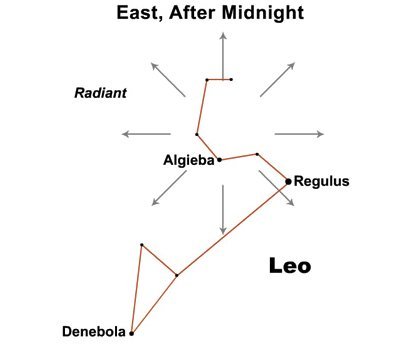 ... From a point
a little to the west of ζ
[Adhafera, ζ Leonis] and
not much farther from γ -
when first observed the radiant point was in Cancer
- issue the Leonids, the meteor stream of
November 9th to 17th, its maximum now occurring on
the 13th to 14th, which about every thirty-three
years has furnished such wonderful displays, the
last in 1866 and the next due in 1899. Their first
noticed appearance may have been in the year 137,
since which date the stream has completed fifty-two
revolutions. According to Theophanes of Byzantium,
the shower was seen from there in November, 472; but
the late Professor Newton, our deservedly great
authority on the whole subject of meteors, commenced
his list of the Leonids with their appearance on the
13th of October, 902, the Arabian Year of the Stars,
during the night of the death of King Ibrahim ben
Ahmad, and added: It will be seen that all these
showers are at intervals of a third of a century,
that they are at a fixed day of the year, and that
the day has moved steadily and uniformly along the
calendar, at the rate of about a month in a thousand
years ...
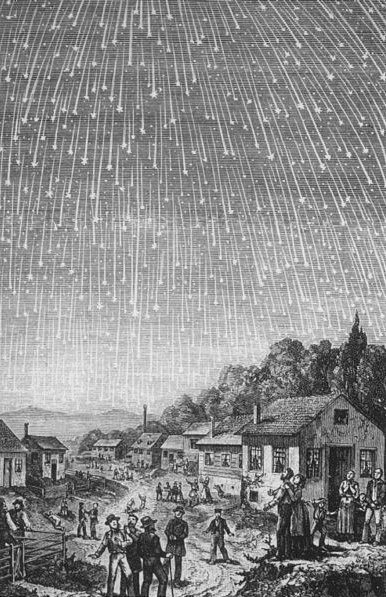 |
|
ALGIEBA (The Mane) = γ
Leonis,
q Carinae (155.5) |
TANIA AUSTRALIS (Southern Gazelle) =
μ
Ursae Majoris (156.0), GHOST OF
JUPITER = NGC3242 Hydrae
(156.8) |
Extended Net-26b (Ox)
μ
Hydrae
(157.1) |
Maru-sha-arkat-Sharru-15 (4th Son
behind the King)
SHIR (Possessing Luminous Rays) =
ρ
Leonis
(158.9) |
p Carinae (159.3) |
φ Hydrae (160.3) |
|
SOLSTICE |
22 |
23 |
JUNE 24 (175) |
25 |
26 |
|
Aug 24 (236) |
25 |
26 |
27 (175 + 64) |
28 |
29 |
 |
 |
|
Eb4-38 |
Eb4-39 |
|
erua age rae |
|
No star listed
(161 →
φ) |
VATHORZ POSTERIOR = θ Carinae
(162.1),
PEREGRINI = μ Velorum,
η Carinae
(162.6) |
|
Aug 30 |
31 |
 |
 |
 |
 |
 |
 |
|
Eb4-40 |
Eb4-41 |
Eb4-42 |
Eb5-1 (326 + 150) |
Eb5-2 (477) |
Eb5-3 (152) |
|
manu i ruga o te take |
manu rere |
E manu |
i te tino |
ku tere mai |
henua - kiore |
|
Ruga.
Upper part, higher part;
when used as a locative adverb, it
is preceded by a preposition: i
ruga, above, on; ki ruga,
upwards, mai ruga, from
above. When used with a noun the
same preposition is repeated:
he-ea te vî'e Vakai, he-iri ki ruga
ki te Ahu ruga, the woman Vakai
went, she climbed Ahu Runga. Ruga
nui, high, elevated, lofty:
kona ruga nui, high place,
elevated position, high office;
mana'u ruga nui, elevated
thoughts. Vanaga. High up; a ruga,
above; ki ruga, on, above,
upon; ma ruga, above; o
ruga, upper; kahu o ruga,
royal (sail); ruga iho,
celestial. Hakaruga, to
accumulate, to draw up. P Pau.,
Mgv.: ruga, above. Mq.:
úna, úka, id. Ta.: nua,
nia, id. Churchill.
Take.
The Marquesans are the
only people who own to a distinctive
national name, and retain a
tradition of the road they travelled
from their original habitat, until
they arrived at the Marquesan
Islands. They call themselves te
Take, 'the Take nation'.
Fornander. Take, Tuvaluan for
the Black Noddy (Anous Minutes).
The specific epithet taketake
is Māori for long established,
ancient, or original. In the Rapa
Nui mythology, the deity
Make-make was the chief god of
the birdman cult, the other three
gods associated with it being
Hawa-tuu-take-take (the Chief of
the eggs) his wife Vie Hoa
and Vie Kanatea. Wikipedia.
Tere. 1. To run, to flee,
to escape from a prison. 2. To sail
a boat (also: hakatere);
tere vaka, owner of a fishing
boat. 3. (Deap-sea) fisherman;
tere kahi, tuna fisherman;
tere ho'ou, novice fisherman,
one who goes deap-sea fishing for
the first time. Penei te huru
tûai; he-oho te tere ho'ou ki ruga
ki te hakanonoga; ana ta'e rava'a,
he-avai e te tahi tagata tere vaka i
te îka ki a îa mo hakakoa, mo
iri-hakaou ki te hakanonoga i te
tahi raá. The ancient custom was
like this: the novice fisherman
would go to a hakanonoga; if
he didn't catch anything, another
fisherman would give him fishes to
make him happy so he'd go again one
day to the hakanonoga (more
distant fishing zones where larger
fishes are found). Vanaga. To
depart, to run, to take leave, to
desert, to escape, to go away, to
flee, fugitive, to sail, to row, to
take refuge, to withdraw, to
retreat, to save oneself; terea,
rest, defeat; tetere, to beat
a retreat, to go away, refugee;
teretere, to go away, hurrah;
hakatere, to set free, to
despatch, to expel, to let go, to
liberate, to conquer, helmsman;
terega, departure, sailing;
teretai, a sailor. Churchill. |
|
ν Hydrae (163.1) |
No star listed (164)
ALTAIR (α
Aquilae) |
Wings-27 (Snake)
η
Octans (165.4),
ALKES (Shallow Basin) =
α
Crateris
(165.6)
*124.0 = *165.4 - *41.4 |
ANA-TIPU-4
(Upper-side-pillar - where the
guards stood)
MERAK (Loin, not Lion) =
β
Ursae Majoris
(166.2),
DUBHE (Bear) =
α
Ursae Majoris
(166.7) |
11h (167.4)
χ
Leonis,
χ¹
Hydrae (167.1),
χ²
Hydrae (167.3)
*167.4 - *41.4 = *126.0 |
AL SHARAS (The Ribs) = β Crateris
(168.6) |
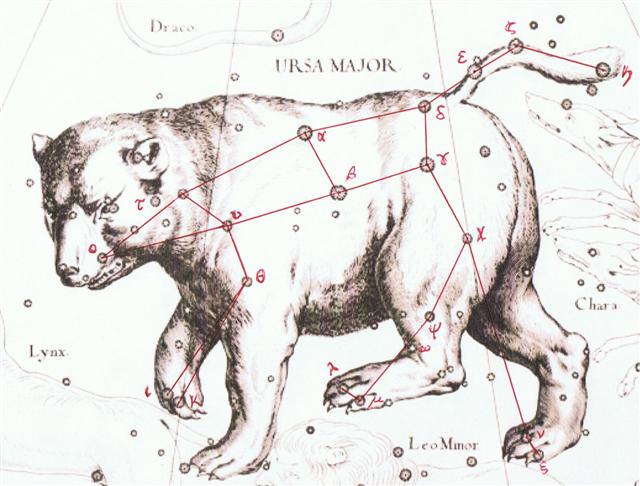 |
|
JUNE 28 |
29
(244 - 64 = 180) |
SIRIUS |
JULY 1 |
2 |
3
(184) |
|
"July 21 |
22 |
23 (181 + 23) |
24 (205 →
HEZE) |
25 (84 + 122) |
26 |
|
Aug 31 |
Sept 1 |
2 (181 + 64) |
3
(2 * 123) |
4 |
5
(248) |
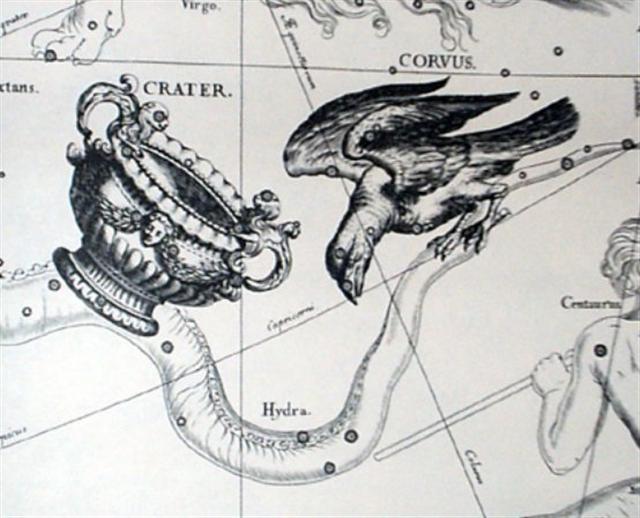
Sept 3 (246) + 183 =
429 = 365 + 64 = March 5 (64, 429, *349) → 3 * 161 - 54 = 429 =
118 - 54 = 64 (March 5). |
|
THE SUN: |
|
DEC 28 |
29 (363) |
- |
JAN 1 (65 - 64) |
2 |
|
March 2 (61) |
3
(31 + 28 + 3) |
4 (428 - 365 = 63) |
5
(246 + 183 = 429) |
6
(365 + 65) |
7
(80 + 351 = 431) |
|
ι Cephei (346.0),
λ Aquarii, γ Piscis Austrini, σ
Pegasi (346.5) |
SCHEAT AQUARII = δ Aquarii (347.0),
ρ
Pegasi (347.2),
δ
Piscis Austrini (347.4),
FOMALHAUT (Mouth of the Fish) =
α
Piscis Austrini,
τ
Gruis (347.8)
*306.0 = *347.4 - *41.4 |
FUM AL SAMAKAH (Mouth of the Fish)
=
β
Piscium
(348.3),
ζ
Gruis (348.5),
ο
Andromedae (348.9) |
Al Fargh al Mukdim-24 (Fore Spout)
/
Purva Bhādrapadā-26 (First of the
Blessed Feet)
/
House-13 (Pig)
SCHEAT PEGASI =
β
Pegasi,
π
Piscis Austrini (349.3),
κ
Gruis (349.4),
MARKAB PEGASI =
α
Pegasi
(349.5)
*308.0 = *349.4 - *41.4 |
23h (350.0 = 167.4 + 182.6)
υ, θ Gruis (350.0),
π Cephei (350.6), ι Gruis (350.9) |
SIMMAH = γ Piscium
(351.7) |
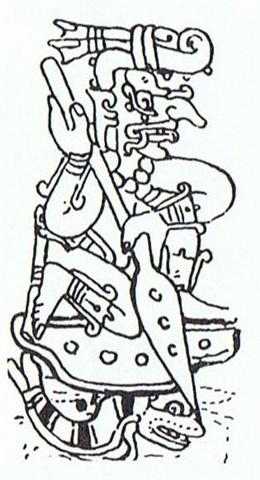 |
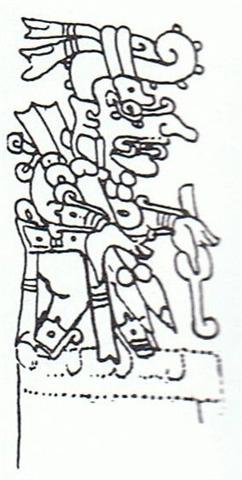 |
 |
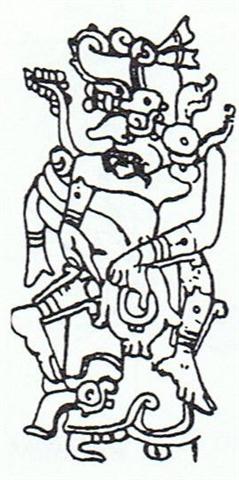 |
|
1 |
2 |
3 |
4 |
|
RIGHT LEG FOLDED |
STANDING UP |
FEET ON THE GROUND |
IN THE TREE |
Next follows a sequence of glyphs which
surely was important, this we can judge from the
many
parallels in other texts:
 |
 |
 |
 |
 |
 |
|
Eb5-4 |
Eb5-5 (154, 480) |
Eb5-6 |
Eb5-7 (13 * 12) |
Eb5-8 |
Eb5-9 (22 * 22) |
|
22 * 22 = 483 (Eb5-9):

3 * 161 (→
Φ) = 483 → 8 / 6 *
360 + 3 → 360 +
123 (→ Phaistos Disc)
.jpg)
118 (Phaistos Disc) + 365
= 483 = 360 + 123 (Phaistos Disc). |
|
kua oho mai koe |
maitaki |
henua |
ko te Rei |
koia kua hoi - te toka i haga
hia |
te henua -
te kiore |
|
Toka. 1. Any large,
smooth rock in the sea not
covered by seaweeds (eels are
often found between such rocks).
2. To be left (of a small
residue of something, of
sediments of a liquid, of
dregs); to settle (of
sediments); ku-toka-ana te
vai i raro i te puna, there
is little water left at the
bottom of the lake; ku-toka-á
te oone, the sediments have
settled. Tokaga, residue,
remainder; firm, stable
remainder or part of somthing.
Vanaga. A rock under water. P
Mgv.: toka, coral. Mq.:
toka, a bank where the
fishing is good. Ta.: toa,
rock, coral. Tokatagi,
sorrow T. Churchill.
There were
10 days from
Take to
Toka (presumably
a play on words):
 |
*10 |
 |
|
manu i ruga o te take |
koia kua hoi -
te toka i haga
hia |
|
Aug 31 |
Sept 10 |
|
|
VISIBLE CLOSE TO
THE FULL MOON: |
|
JULY 4
(185) |
5 |
6 |
7 |
8 |
9 (190) |
|
Sept 6 (246 + 3) |
7 |
8 |
9 |
10 |
11 (254) |
|
Al Zubrah-9 (Mane)
/
Purva Phalguni-11 (First Reddish
One - Fig Tree)
ZOSMA (Girdle, not Belt) =
δ
Leonis
(169.2),
COXA (Hips)
=
θ
Leonis (169.4)
*169.4 - *41.4 = *128.0 |
φ
Leonis (170.0),
ALULA
(First Spring of the Gazelle) =
ξ,
ν
Ursae
Majoris
(170.5),
LABRUM =
δ
Crateris
(170.6) |
σ
Leonis (171.1),
λ
Crateris (171.6),
ι
Leonis,
ε
Crateris (171.9) |
γ
Crateris, π
Centauri (172.0),
κ
Crateris (172.5),
τ
Leonis (172.8)
GREDI (α Capricorni) |
ο¹ Centauri (173.8) |
GIAUZAR = λ Draconis
(174.0), ξ Hydrae (174.3), ο²
Centauri, λ Centauri (174.8) |
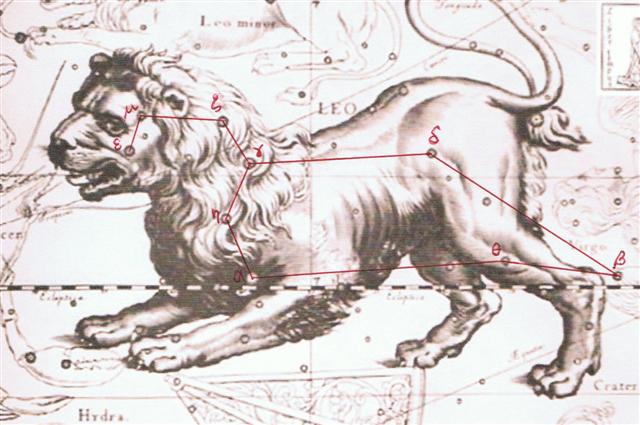
.jpg)
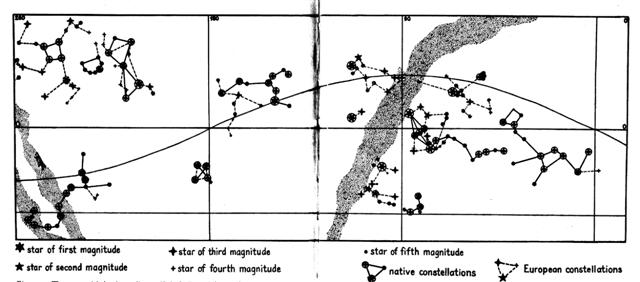 |

|

















.jpg)

.jpg)

